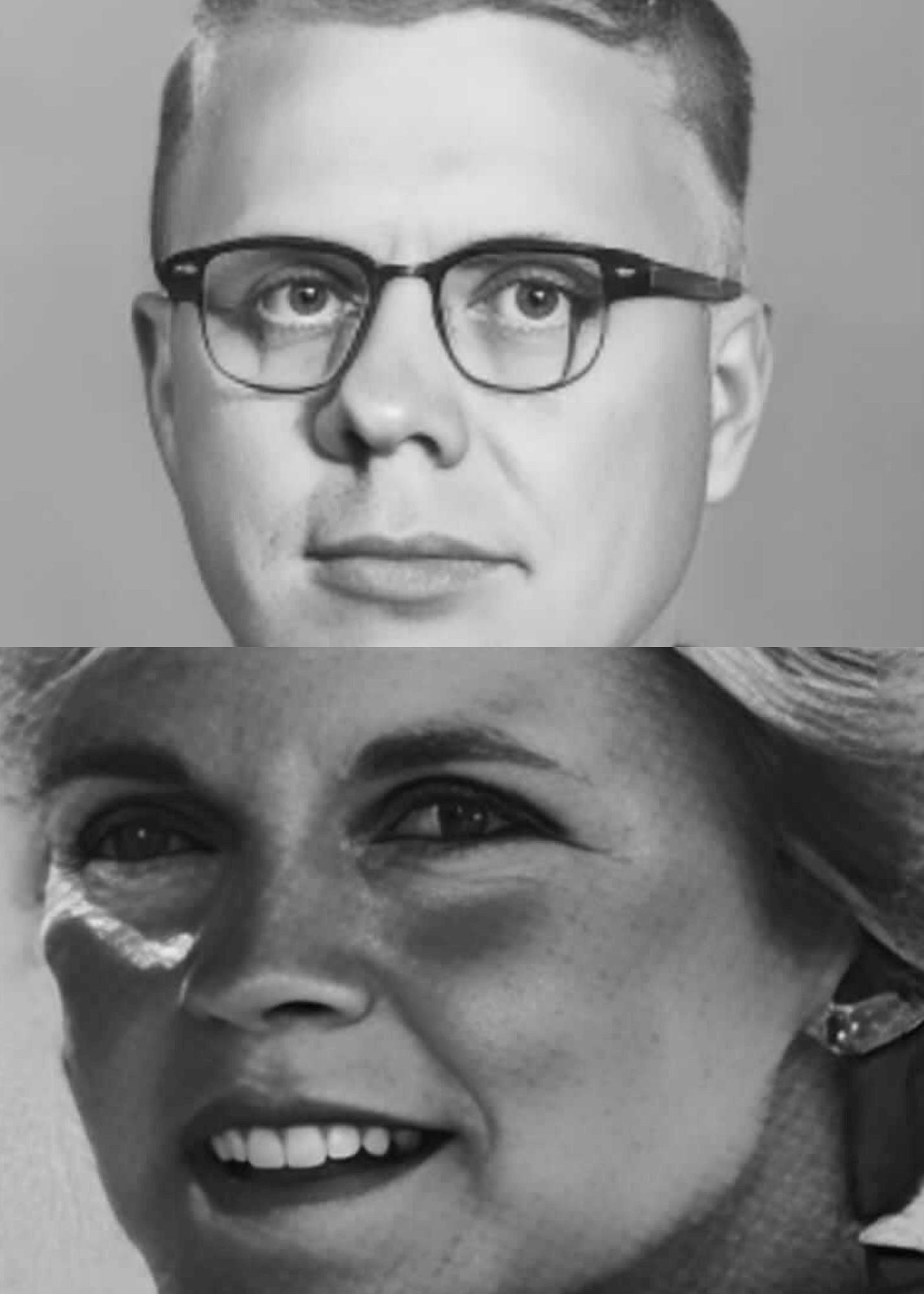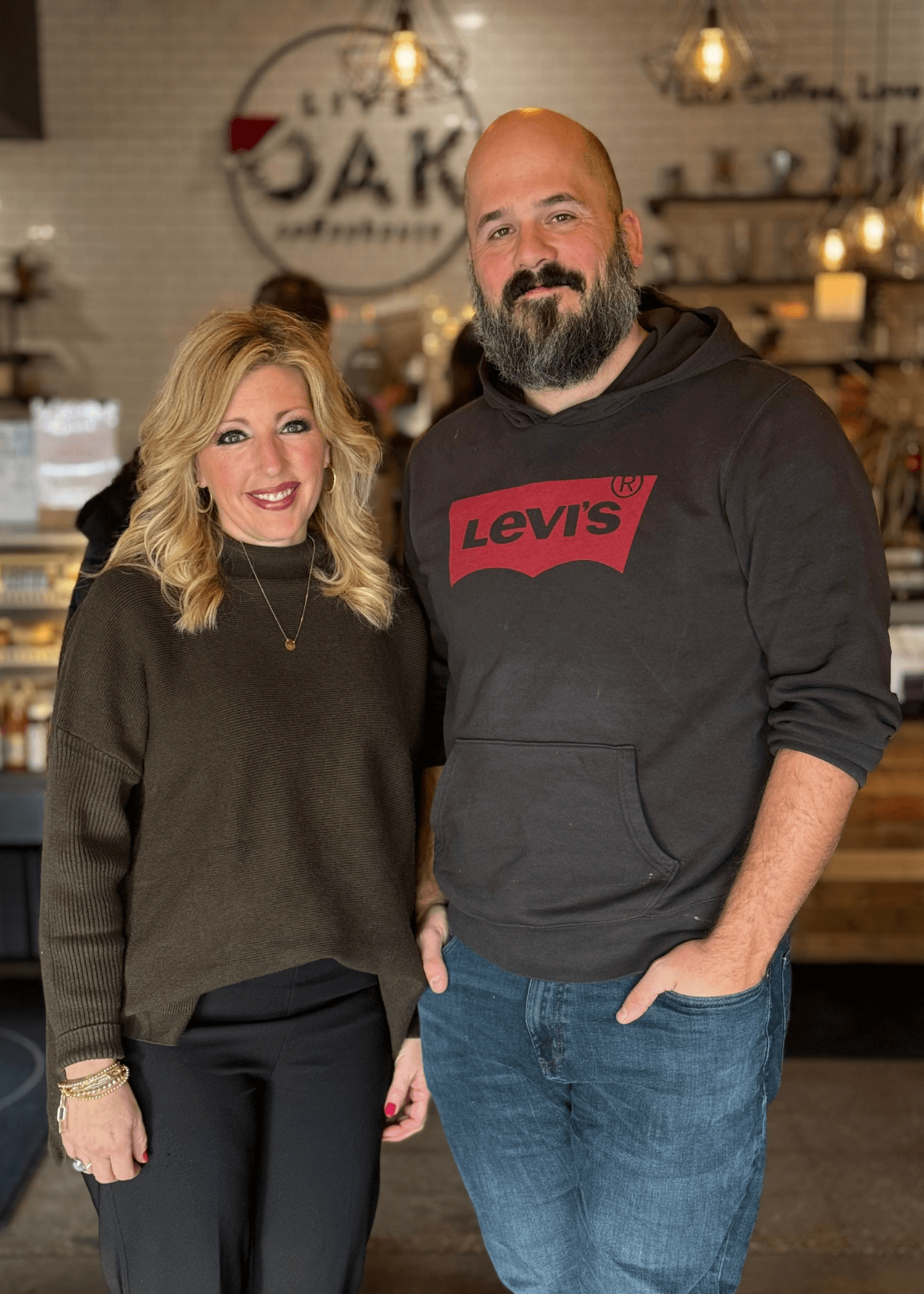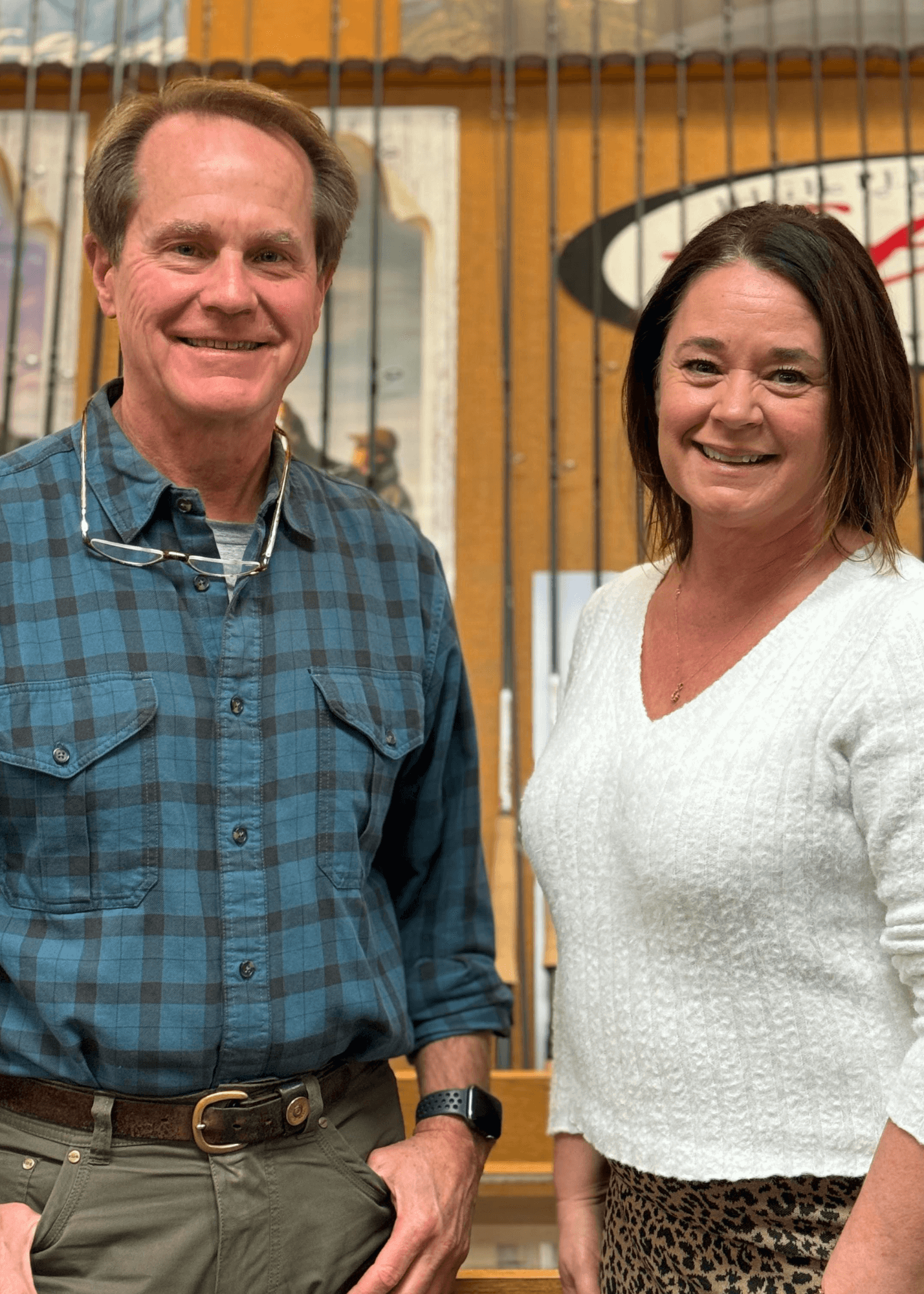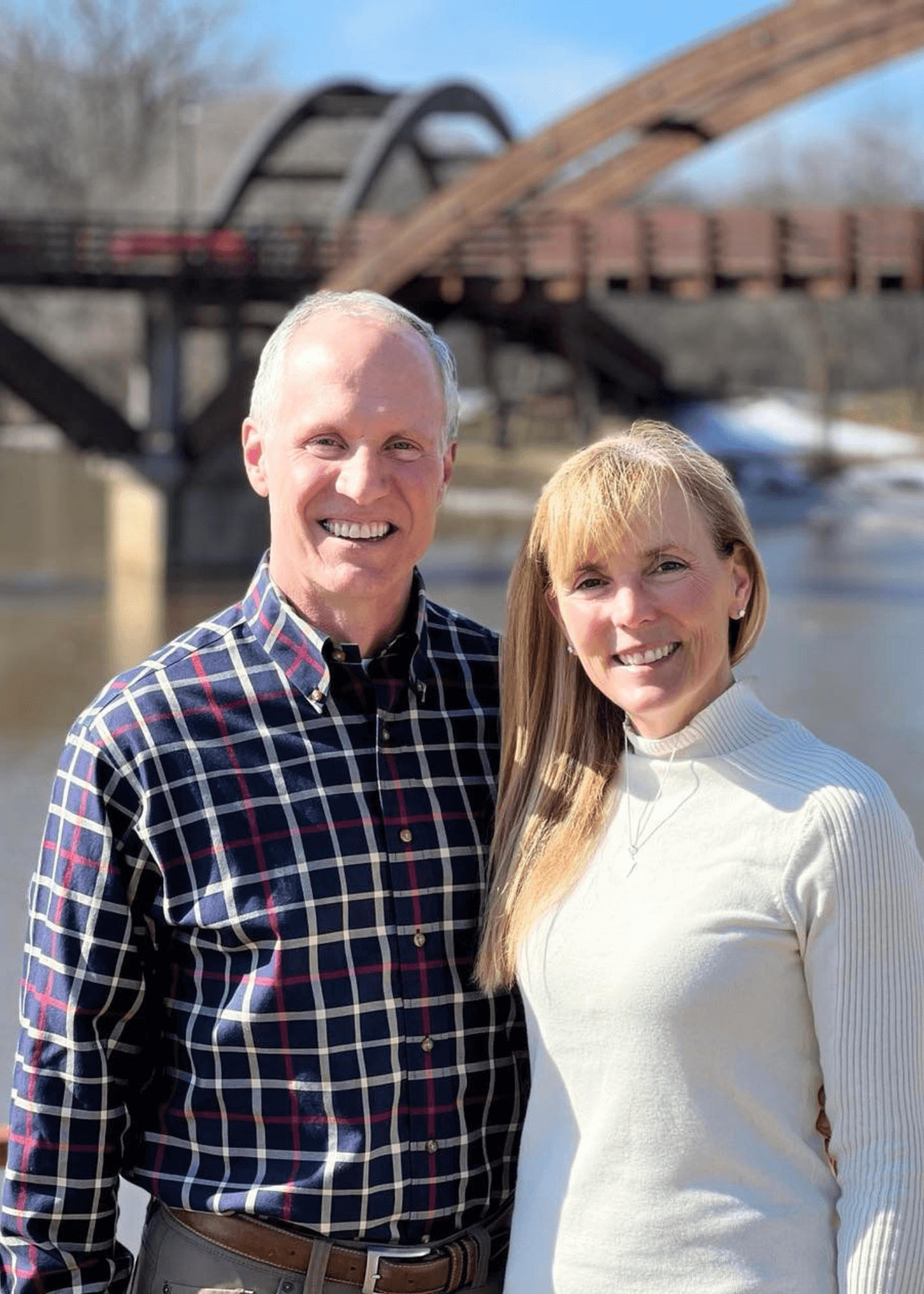Prologue: The Midland Area Community Foundation’s founding trustees met for the first time on October 2, 1973. Of the fifteen original trustees, thirteen have passed. Roy M. Goethe and Ann Smock could not attend the Foundation’s recent Ripple Effect celebration to be honored on behalf of the original board. Still, they submitted the following passages about the Midland Area Community Foundation. To learn more about the Foundation’s founding trustees, visit midlandfdn.org/originaltrustees.
A Biography Provided by Dr. Roy M. Goethe:
“My name is Dr. Roy M. Goethe. I was raised in a Swedish family in Ishpeming in the U.P., the youngest of eight children. After earning numerous awards in academics and sports, I enrolled at the University of Michigan. There, I studied pre-medicine for three years, medical school for four years, medical internship for one year, and a pediatric residency for three years, leading to Board Certification and a Fellowship in the American Academy of Pediatrics. Between medical school and pediatric residency, I spent three years in the U. S. Army Medical Corp, primarily in Germany, serving two years as Chief of Pediatric Service.
In 1961, I joined the Midland pediatric practice of Dr. Bernard O’Hora and Dr. Warren Tamaris. I also had the privilege of practicing with Dr. Robert Van Sickle. During my thirty-four years of practice, I enjoyed serving on various Midland Hospital and community boards and committees. I retired in July, 1995.
In connection with Midland Foundation, I was a founding member. I was a Board of Trustees charter member from 1973- 1987, Vice President and Executive Committee 1980 – 1987, and Grants Committee 1979 – 1987.
I like spending time with my wife Karen, three sons, daughter, and grandchildren. And as always, I am a loyal University of Michigan fan.”
What Prompted You To Get Involved with the Original Community Foundation Board?
“Success in performance of high school academics, athletics, speech competitions, and class governance were rewarded with guest luncheons at Rotary and other service clubs, which led to continuing interaction with many of the “doers and shakers” in the community.
The importance of community volunteering was permanently instilled in me.
Five or six years into my practice of pediatrics in Midland, I received a phone inquiry from Carl Gerstacker about my interest in becoming a founding member of the new Midland Community Foundation. I was assured that written information concerning community foundations put together by the Cleveland, Ohio Community Foundation (the first in the nation) would be promptly forwarded to me.
At that time, I had served as chairman of the medical staff at Midland Hospital, president of the Midland County Medical Society, the first recipient of the Robert Bowsher Award for teaching in the family practice residency program, membership on the Midland County Board of Health (eventually transitioning into twenty-four years), singing bass in the Chapel Lane Presbyterian senior choir, serving as Mr. Hi-Pockets Clown noted for his remarkable accuracy in guessing the age and weight of attendees at the annual Plymouth Elementary Carnival, and other community involvement. I therefore accepted the gracious invitation to get involved with the original Community Foundation Board.”
What Memories Do You Have of the Foundation and Board Getting Started?
“My fondest memory concerning the new start-up Midland Community Foundation was my being asked to serve as one of the founding directors. I surmised that my invitation was based on my role in the delivery of health care. It was an honor to be working on behalf of the community alongside impressive members from all different areas of expertise. This made it possible for me to take part in community projects outside of my field of medicine.”
In the Initial Years, What Projects are Particularly Memorable?
“During my initial introduction to the concept of community foundations, it was suggested, in addition to serving on various committees, that members of the board of directors play an active role in the search for projects. A senior director encouraged us to “sow seeds,” which eventually transitioned into marvelous projects such as The Tridge and The Rail Trail.”
An Email Submitted by Ann Smock:
“Midland is a very special community which has always demonstrated leadership in a wide range of public and private enterprises that have benefited society locally, nationally, and internationally. When my husband, Sidney N. Smock, M.D., and I moved from Midland 40 years ago, we carried with us that spirit and collectively made commitments to share our time, talents, and financial gifts to benefit worthwhile causes. We lived for decades in each: Ann Arbor, Michigan; Scottsdale, Arizona; and ultimately retired in the Aspen, Colorado community. In each locale, both Dr. Smock and I together supported the Arts (especially music and theater) and environmental causes, and, probably most dear to our hearts, we used our professional skills to aid and improve health care for all. In all of our philanthropic activity, we really considered ourselves a team.”
A few Examples of our heartfelt efforts:
“While in Ann Arbor, I completed a master’s Degree in Public Health Education/Administration while Dr. Smock served as Director of Emergency Services at University of Michigan Medical Center. Dr. Smock became involved with colleagues nationwide to promote and establish the specialty/residency in Emergency Medicine, which has resulted in top-quality “first response” care and triage in Emergency Rooms nationally and internationally. In Dr. Smock’s research At the University of Michigan, he determined that on-site treatment of pulseless patients with shock therapy saved lives. His theories and writings subsequently led to the development of the AED device, which is used by medical response teams—and even bystanders in public places, literally globally—to revive heart attack/heart event patients. When we moved to Arizona in the late 1970s, the outpatient surgery concept was being tested in Phoenix. Dr. Smock became involved in establishing a freestanding outpatient surgery center in Scottsdale. He also began promoting the idea of freestanding urgent care centers, Which would be available to people who had no primary care physician or were traveling—and which care costs the medical care system far less than service in hospital emergency room care.
In my own advocacy for better health care, in each community where we have lived, I promoted written instruction for patients when they both entered and exited healthcare venues. In my lifetime, I have seen this concept become standard in medical care. As a consultant in Arizona, I worked with the Arizona State Senate to establish their own version of Medicaid (called ACCESS) to enable the state to qualify for Federal matching funds. I volunteered in Phoenix at St. Mary’s Food Bank in its early/formative days; today, it is operated at the highest level of a business model, serving a widespread community. It was an exceptionally important asset during the recent COVID pandemic. We have continued to extend financial gifts to St. Mary’s as well as to food banks in the Western Colorado area. Another passion of mine has been to support an organization in Western Colorado which advocates for and shelters women and children who have been subjected to domestic abuse.
I choose to share this information in the hopes that it might stir others to see that their philanthropic actions, over a lifetime, large or small, do make a difference. And I know it was the intent of those of us who initiated the Midland Area Community Foundation to energize people to act collectively and individually for the greater good for all.”
With gratitude and best wishes to those who are continuing the exceptional work of the Midland Area Community Foundation,
Ann Smock”
#50Storiesfor50Years





